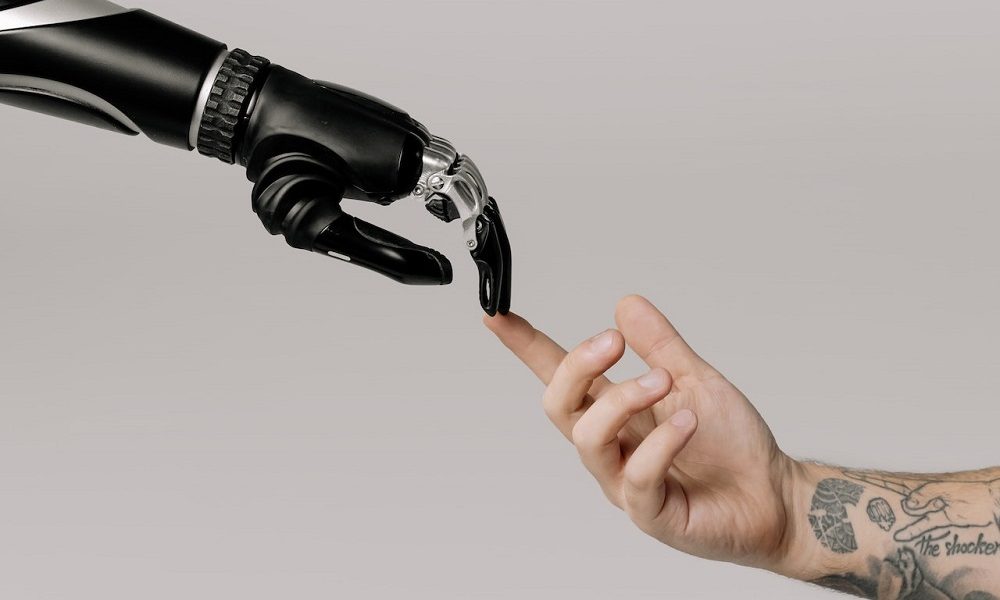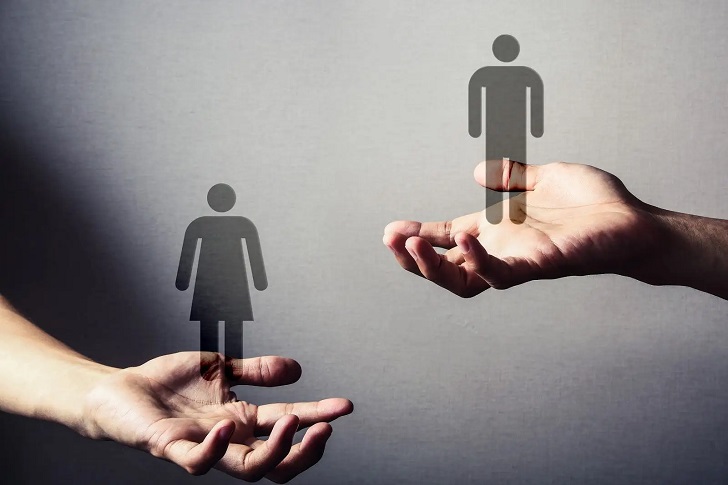
The Dark Side of Artificial Intelligence

Artificial intelligence (AI) has become an integral part of our daily lives in our rapidly advancing digital age. From voice assistants like Siri and Alexa to social media algorithms, AI tools have made our lives more convenient.
However, while these tools offer countless benefits, it’s important to recognize that they can also have unintended consequences, including potential harm to our mental health. This article will explore how popular AI tools can impact our psychological well-being.
Constant Connectivity
One of the key ways in which AI tools can affect our mental health is by fostering a culture of constant connectivity. Smartphones, social media, and AI-driven notifications have created a sense of “always-on” culture, making it challenging for individuals to disconnect and relax. This constant connectivity can increase stress, anxiety, and even burnout.

AdobeStock/ Pexels | Technology is a useful servant but a dangerous master
AI algorithms are designed to capture our attention and keep us engaged with content for as long as possible. While this is great for tech companies’ profits, it can harm our mental health. The never-ending stream of notifications and personalized content can lead to information overload, making it difficult to focus, concentrate, and recharge.
Filter Bubbles and Echo Chambers
AI algorithms play a significant role in shaping the content we consume online. They analyze our preferences, search history, and interactions to provide us with personalized content. While this can make our online experience more enjoyable, it also creates filter bubbles and echo chambers. Filter bubbles occur when AI algorithms only show us content that aligns with our existing beliefs and opinions.
This can lead to confirmation bias and hinder our ability to engage in meaningful discussions with people with different viewpoints. As a result, we may become more polarized and less open to diverse perspectives, which can harm our mental health by increasing feelings of isolation and hostility.

Pixabay/ Pexels | The algorithms behind social media are not designed for your well-being; they’re designed to keep you engaged
Social Comparison and Self-esteem
Social media platforms heavily rely on AI to curate our news feeds, showcasing carefully selected content to maximize our engagement. While this is designed to keep us scrolling and interacting, it also exposes us to a constant stream of curated images and updates from others, often highlighting their achievements and happy moments.
This constant exposure to others’ seemingly perfect lives can lead to social comparison and negatively impact our self-esteem. Many people feel inadequate when they compare their own lives to the carefully curated versions presented on social media. This can lead to feelings of anxiety, depression, and low self-worth.
Privacy Concerns
Privacy concerns related to AI tools can also contribute to mental health issues. As AI collects and analyzes vast amounts of personal data, many individuals worry about potentially misusing this information. The fear of data breaches, identity theft, or invasive surveillance can lead to heightened anxiety and stress.

energepiccom/ Pexels | The price of being constantly connected is often the inability to connect with ourselves
Moreover, the feeling of being constantly monitored and analyzed by AI systems can erode our sense of autonomy and privacy. This sense of being under constant surveillance can be emotionally taxing, contributing to mental health problems.
Information Overload and Cognitive Overwhelm
The vast amount of online information curated by AI algorithms can lead to information overload and cognitive overwhelm. When AI tools bombard us with abundant content, it becomes challenging to filter through it all and identify trustworthy information.
This information overload can lead to decision fatigue and stress. Constantly sifting through vast amounts of information can take a toll on our cognitive resources, making it harder to make informed choices and manage our mental well-being.
More in Mental Health
-
`
5 Reasons Why Dad’s Side of the Family Misses Out
Family bonds are intricate and multifaceted, often creating a unique tapestry of connections. However, many people notice a peculiar trend: stronger...
July 12, 2024 -
`
A Quick Guide on How to Get Short-Term Disability Approved for Anxiety and Depression
Living with anxiety or depression poses unique challenges, particularly in the workplace, where stress can exacerbate symptoms. For many, short-term disability...
July 5, 2024 -
`
Why Do People Feel Sleepy After Eating?
Is feeling sleepy after eating a sign of diabetes? Well, not directly. There are many reasons why you feel drowsy after...
June 20, 2024 -
`
What Is High-Functioning Depression? Symptoms and Treatment
High-functioning depression may not be a term you hear every day, but it’s a very real and challenging experience for many....
June 13, 2024 -
`
Kelly Clarkson’s Weight Loss Ozempic Journey – Debunking the Rumors
In a refreshing moment of transparency, Kelly Clarkson, the beloved singer and talk show host, sheds light on her remarkable weight...
June 3, 2024 -
`
What Is the Best Milk for Gut Health and Why?
In recent years, the milk section at the grocery store has expanded far beyond the traditional options. While cow’s milk has...
May 30, 2024 -
`
Do Dental Implants Hurt? Here’s All You Need to Know
When you hear “dental implants,” you might wince at the thought of pain. But do dental implants hurt as much as...
May 24, 2024 -
`
5 Key Differences Between A Psych Ward & A Mental Hospital
Curious about the differences between a psych ward and a mental hospital? You are not alone. With the mental health conversation...
May 16, 2024 -
`
It’s Official! “Selling Sunset’s” Christine Quinn & Husband Christian Dumontet Are Parting Ways
Have you ever found yourself unexpectedly engrossed in the personal lives of celebrities, especially when their stories take dramatic turns? Well,...
May 9, 2024










You must be logged in to post a comment Login